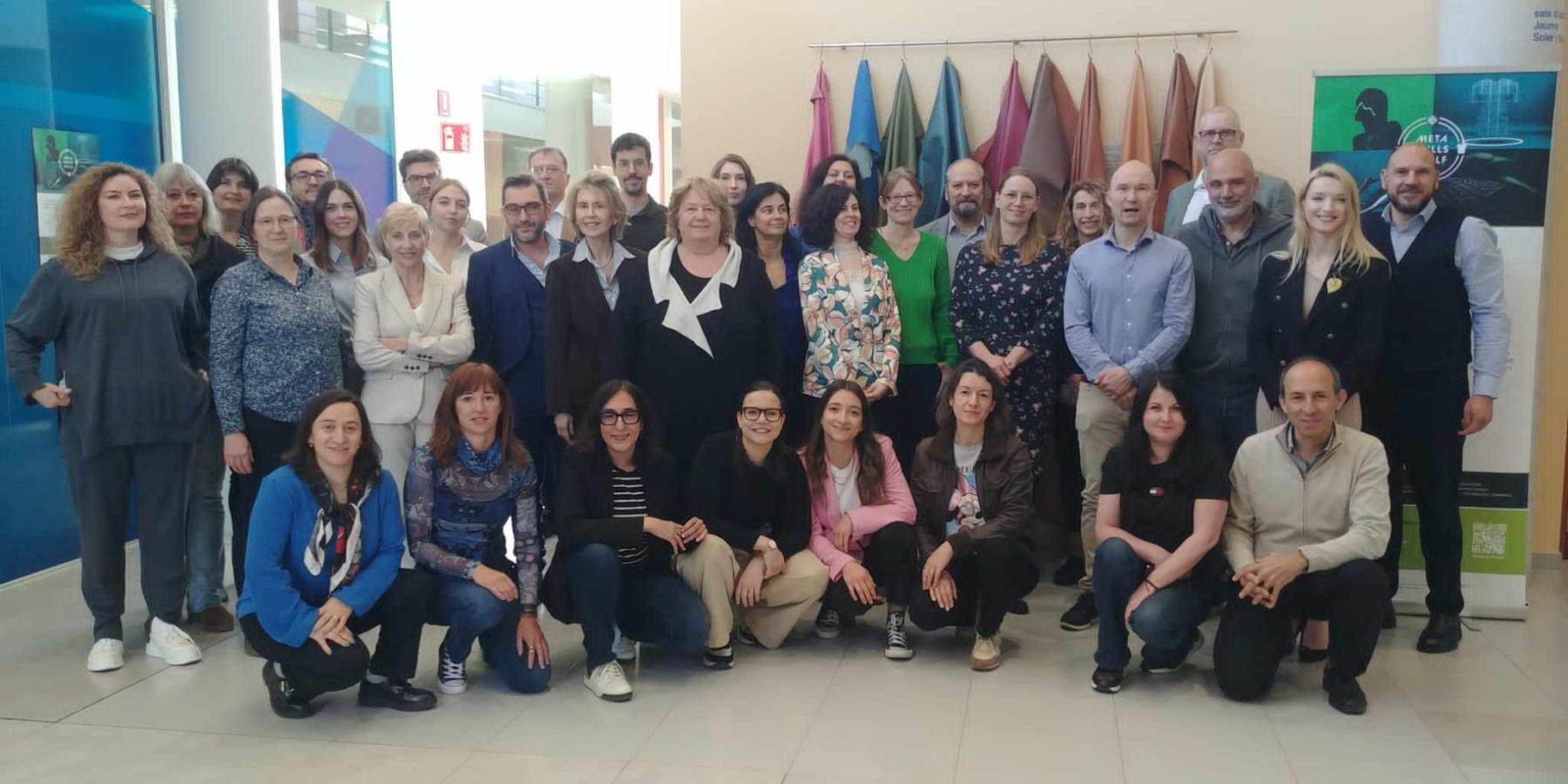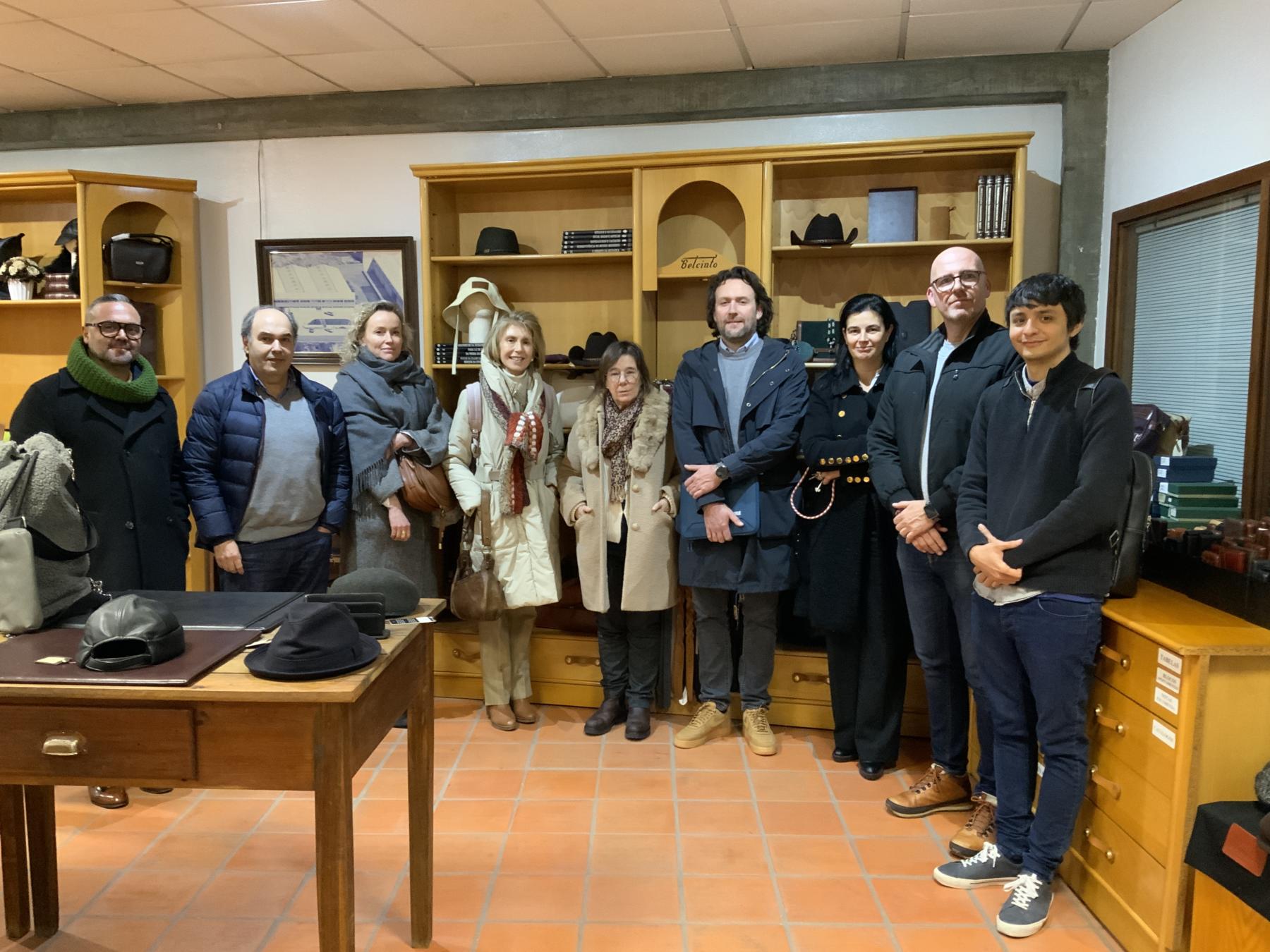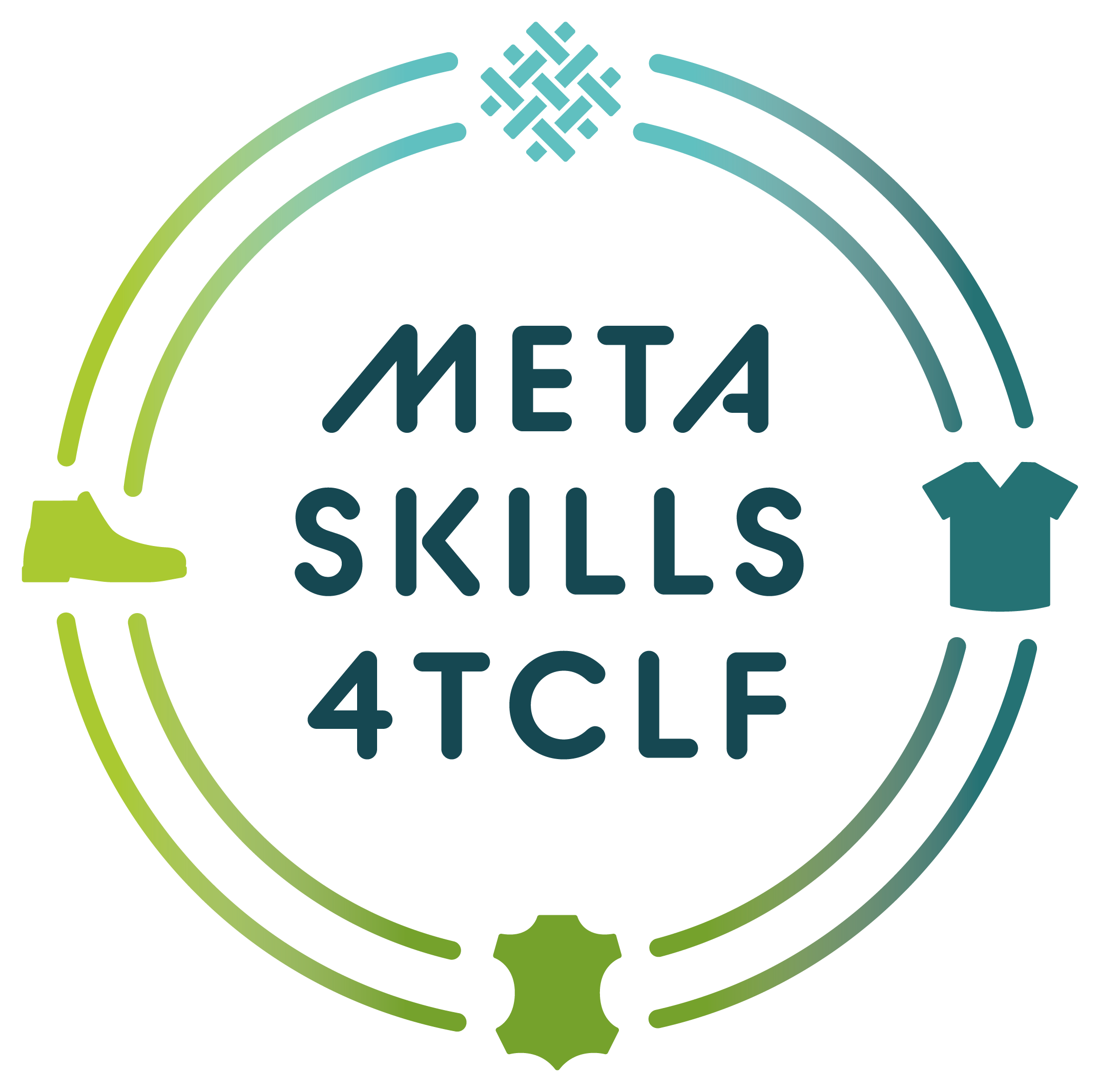23 April 2024 — News, Press Releases, Projects
MetaSkills4TCLF: A European Collaborative Effort towards Skills Enhancement in the TCLF Industries

On the 18th and 19th of April, private and public organisations from 11 countries (BE, DE, FR, GR, IT, PL, PT, RO, SE, SP and UA) representing the European textile, clothing, leather, and footwear (TCLF) industries, gathered in Igualada, Spain, to discuss the progress and next steps of the strategic Blueprint MetaSkills4TCLF project. The project, co-funded by the Erasmus+ programme, stems from the needs of TCLF companies to upskill and reskill their workforce to respond to the opportunities of the latest green and digital transformation of our society. The international consortium will address the skills gap on the labour market by elaborating a skills strategy adjusted to companies’ needs that include innovative learning resources, as well as by strengthening and upgrading the European TCLF education systems thanks to regional public-private collaboration.
The Metaskills4TCLF project builds on the results of the Erasmus+ Blueprint project Skills4Smart TCLF 2030, which launched an EU Network of VET providers promoting excellence in TCLF education to now be reinforced with Higher education institutions and VET centres from additional regions in Europe. The existing EU Network of public authorities supporting the modernisation of TCLF education will also be enlarged to include more regions in Europe to promote regional collaboration and competitiveness of the TCLF industries.
The learning resources and decisions made in the project will be built on evidence-based research, and in the meeting, partners analysed the results of a survey to companies and education providers to shed light on the challenges and external drivers impacting TCLF companies in this new industrial era. The 474 replies received highlighted the following drivers of change: the stricter technical standards and regulations regarding environment, health, and safety, the rising cost of energy and raw materials due to climate change or (geo)political developments, the adoption of advanced manufacturing processes, technologies, and materials, the changing behaviours of younger generations approaching work, the rise of green and sustainable products, as well as the difficulty of attracting young people to TCLF technical positions.
Partners acknowledged that more students are needed in TCLF education, and have started to develop a communication campaign aimed at improving the attractiveness of working in TCLF companies for younger generations. The consortium is also committed to take advantage of the technological revolution and develop innovative and attractive training curricula and programmes that include virtual reality (VR) resources. During the meeting, partners explored the integration of VR glasses into classroom settings to envision the immersive learning experiences that will be offered. The VR resources will encompass both 360° photos, as well as practical videos, while also being accessible without the need for VR glasses.
Furthermore, public authorities play an important role in the development of education systems, particularly within regions with decentralised competences, and a collaborative dialogue between them and social partners and education centres is essential. Consequently, partners will establish public-private skills alliances (Pacts for Skills) at regional and national levels to bolster and enhance education systems while preserving a skilled workforce. To support this dialogue and general collaboration, relevant public authorities and education centres across Europe will, during the project, be invited to webinars/workshops introducing the project activities and outcomes, as well as proposing initiatives to jointly work on and learn from each other.
Stay updated and discover how you can get involved with our activities or simply learn more by following us on LinkedIn and Instagram. Don’t forget to subscribe to our newsletter for the latest updates!




